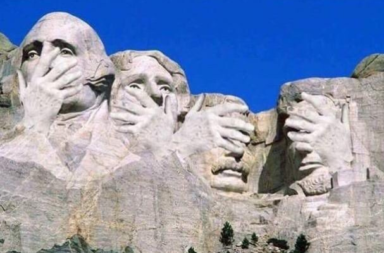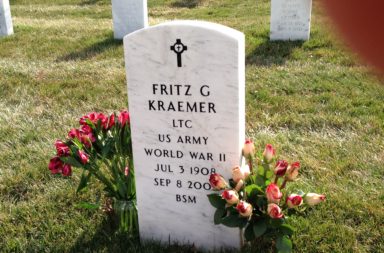How it all began: Over three decades ago, an ambitious young American student was prophetically chosen as class president at Livingston High School.
In 2015, this former student returned to attend the school’s bicentennial celebrations – this time, with the possibility of entering the US presidential election as a promising candidate. Chris Christie’s political rise has been phenomenal over the years, yet he remains rooted to the affluent township of Livingston in New Jersey, where he grew up.
Today he wants to become another president- of the United States of America.
Benevolent or Bully?
Republican Chris Christie was born on 6 September 1962 in Newark, New Jersey. After completing his secondary education at Livingston High School, it seems like he was already preparing for a career in politics. Christie completed a B.A. in Political Science from the University of Delaware in 1984, and earned a J.D. at Seton Hall University School of Law in 1987. Those who knew him as he was growing up do not agree with the idea of Christie being brash, aggressive or flamboyant. Christie’s former classmates appreciate how he never missed important school reunions, even socializing at after-parties in smaller hotels after the events, despite being a governor. Christie’s friend since junior high school, Jayme Ratner, shared his opinion about the leader, “Chris has always gone home for big things—reunions, when Livingston celebrated its bicentennial…I know his home turf is important to him. It showed he wasn’t above it.” He even explained how Christie used to be nothing like the bully he is perceived to be now. He said, “I don’t ever remember it coming out the way it comes out now. But now, he has a much bigger bully pulpit, bigger fish to fry….It was never life or death situations. He didn’t have to get up and beat his chest.”
Not surprisingly, Christie chose his alma mater in the same township to declare his presidential intentions. Chris Christie, the 55th Governor of New Jersey, launched his 2016 presidential campaign around seven months ago, on 30 June 2015. In his announcement speech at his hometown of Livingston he declared, “I am now ready to fight for the people, I am proud to announce my candidacy for the Republican nomination for the presidency of the United States of America.”
All was seemingly going well for Christie, but it was not meant to last very long. A startling discovery was made in 2014, which implicated Christie’s political appointees in the Fort Lee lane scandal. As popularly believed, Christie’s aides allegedly caused a traffic jam on the George Washington Bridge in Fort Lee N.J., merely to avenge Fort Lee’s Mayor Mark Sokolich, a Democrat, for not endorsing Christie in the 2013 gubernatorial election. Though Christie fiercely denied any sort of involvement in the lane closure, the ‘bridgegate’ scandal affected his popularity with voters. Unfortunately for Christie, his former ally and high school senior David Wilstein pleaded guilty in the scandal, which greatly affected Christie’s credibility in political circles.
To make matters worse, this has not been an isolated incident. Christie has allegedly told off teachers who protested against his plan to reduce public employee benefits, threatened to hold back recovery aid for damage due to Hurricane Sandy if the mayor of Hoboken did not approve a development project, and even withdrew funding for an caused an academic institute due to a professor’s support to Christie’s political rival.
Does brusqueness work for a President?
What has caused Chris Christie to change into this persona? What pushed him into becoming something of a political ‘bully,’ even prompting The New York Times to publish a series of incidents where Christie exercised his political clout, in 2013?
This could probably be explained by Christie’s professional affiliations before he became a full-fledged politician.
In 1995, Christie lost his bid for New Jersey General Assembly. After this, he worked as a lobbyist for energy firms. His work was impressive, and Christie was eventually nominated by George W. Bush to serve as United States Attorney for the District of New Jersey from 2002-2008. In 2009, he returned to politics for the gubernatorial race, being elected governor by defeating Democrat Jon Corzine in the general elections. In 2013, he was re-elected. He has since been at the forefront of state-level politics, being known for backing the outcomes he favored.
Thus, the political attitude that Christie displays now has been influenced by years of working to push decisions in his firm’s favor, negotiating brusquely with various stakeholders. As a politician however, this approach to decision-making is not always the most efficient. It is not very constructive for a politician to be partial to certain causes and not consider others at all, even using power to push for the outcome of his own choice. It could probably work efficiently in the corporate world, but is not suitable to equitable governance. In fact, this approach allowed Christie to get through years of state governance, where state legislators possibly lacked experience or political dexterity. At the national level, this could turn out to be a disaster.
Cal Jillson, a professor of political science at Southern Methodist University explains, “Christie may well find that kind of aggressive demeanor to be better attuned to campaigning than governing.” He adds that, “As Obama has discovered, not only can’t you push people around and call them out, you have to stroke them, invite them to dinner, ask about their kids, form personal relationships with them, and draw on that when you need it—not just within your own party but across party lines too.” Bullying can only work “when you’re on a roll,” claims Jillson. If that collapses, a fresh impetus is required to take the political agenda forward – bullying will not help.
If this is the case, then Christie is already in a soup. After his alleged involvement in the ‘bridgegate’ scandal, his popularity with voters has suffered a severe blow. He is no more “on a roll,” so to speak.
According to a recent poll by Fairleigh Dickinson University’s PublicMind, Christie scored a meager 30 percent approval rating. This is a startling drop from a whopping 72 percent approval rating that Christie commanded, after the Superstorm Sandy deluge relief work in October 2012. However, a low rating doesn’t necessarily have to mean that Christie has been eliminated from the competition.
How Christie can ensure victory
“The good news is that none of his potential presidential opponents have emerged with a decisive lead yet. The bad news is that he is the governor in a state where a sizable majority gives a thumbs down to his leadership,” explains Krista Jenkins, professor of political science and director of PublicMind.
What Christie needs to learn then, is to be able to tactfully negotiate decisions by keeping his emotionally charged opinions in control. If Christie’s classmates have described his true nature accurately, then this transformation would not be difficult for the politician to achieve. If he could replicate his sociable, high-school-reunion-behavior in the political arena, he could turn tables around.
After Mitt Romney’s loss to Barack Obama in 2012, Christie was seen as a popular choice for 2016. This idea was bolstered by Christie’s unanimous victory in 2013, being reelected as governor with over 60 percent of the votes. Ever since, he has been touted as one of the strongest candidates for the Republican presidential nomination to be held in 2016.
As long as Christie’s opponents do not step their game up, it seems like the Republican can still remain the forerunner in the 2016 presidential race, despite of the Fort Lee lane scandal. In this regard, it seems like Christie is ensuring that no Republican opponent can stub him in the run to presidential nomination now, slashing back at closest competitor Marco Rubio’s criticisms with his new ad campaign. Christie rebuked Rubio for not attending the vote on the omnibus spending bill, using that as an argument to prove why he is a better Republican. He then played noble by declaring that any kind of divisions within the Republicans will bring defeat for all. He also tweeted a video showing how Rubio used to praise Christie’s political campaign, when they weren’t pitted against each other.
Christie can still clinch the 2016 Republican nomination for the presidential race, not simply by the worth of his political profile, but rather by ensuring that no other Republican’s public image seems better than his own.




